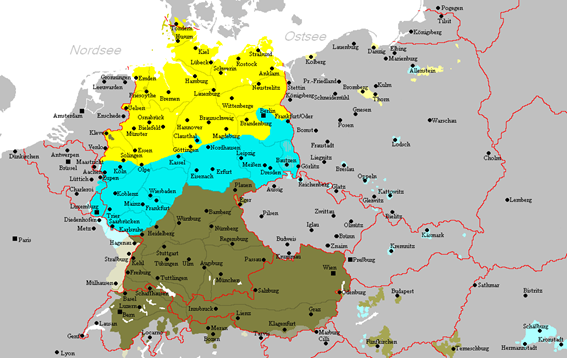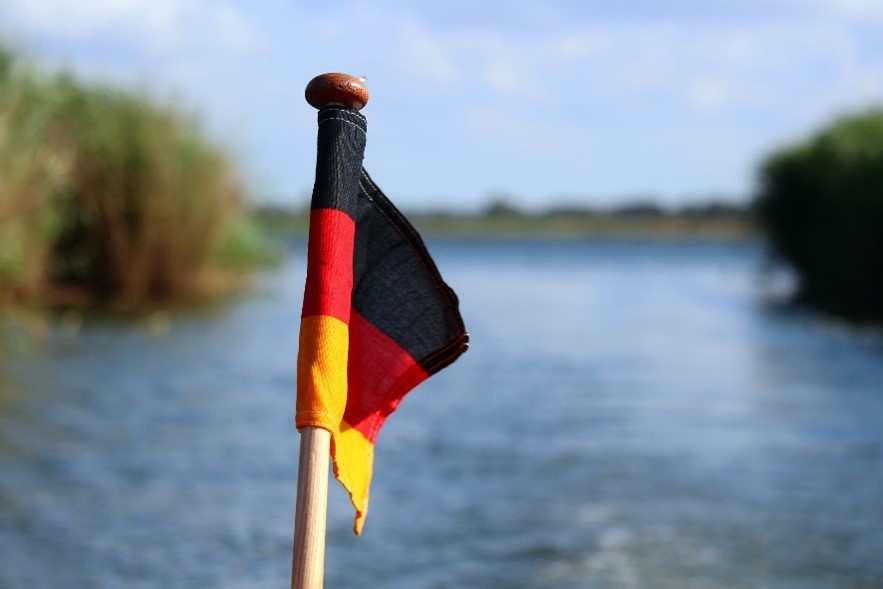Blog
2021.02.22
German language
German dialects – 8 different names for a simple baked good
German is spoken by more than 130 million speakers worldwide, of which about 100 million are native German speakers. There are six countries where German is an official language (Germany, Switzerland, Austria, Luxembourg, Belgium and Liechtenstein). The pronunciation and vocabulary of Swiss German is so different from German in Germany that it is sometimes difficult to understand even for Germans.
Even within Germany, there are different dialects. Some express it in a slightly exaggerated way, saying that two Germans cannot communicate with each other if their hometowns are too far apart.
1.What dialects are there in German?
The German dialects are “Low German” from the northern regions, “Middle German” from the central regions and “High German” from the southern regions. However, ”high” in this case is used in the geographical sense. The altitude of southern Germany is higher than that of northern Germany. For more information on High German in the sense of standard German, you can read this article.
To avoid confusion, it is also sometimes referred to as Upper German. These three regions are further divided into east-west and north-south. Low German is divided into West Low German and East Low German dialects, Middle German into West Middle German and East German dialects, High German into Upper Franconian, Bavarian and Alemannic dialects.
The German spoken in the area of Hanover is considered to be mostly dialect-free. Therefore, the northern regions of Germany are closer to the norm of standard German. Dialectal variations of varying degrees are more common in the southern regions.
In practice, Middle German and High German are often placed in the same category, but this is a classification scheme in which the distinction is based on whether the language is affected by the second consonant shift. Linguistically, German dialects are also classified according to various criteria and are delineated geographically.
2.What is the second consonant shift?
The second consonant shift, which is the decisive criterion for the difference between Low German and Middle/High German, is a consonant change that occurred around the 6th century in the southern German-speaking parts of Switzerland and Austria. The previously voiceless plosives (p, t, k) were transformed into affricates (pf or f, ts or s, k or x ).
/p/ → /pf/ /f/
/t/ → /ts/ /s/
/k/ → /kx/ /x/
Words with this characteristic German pronunciation of /pf/ include modern German words like “Pfeffer”, “Pferd”, “Pfirsich”, and words with the /ts/ sound like “Zeit” and “Zimmer”. In Low German, the /p/ sound in /pf/ is not pronounced strongly even today.
This phonetic change influenced the German language starting in the south and going northwards. Around the 9th century, the influence was limited to the central part of the country, which is why Low German is defined as the language of the region that was not influenced. Similarities between Low German and English and Dutch, which were not affected by this sound change, have also been found.
3.What are the regional differences in vocabulary?

Besides the differences in pronunciation, the dialectal differences also show up in the vocabulary. Let’s take a characteristic example here. The small, round bread in the picture above is called Brötchen in standard German, but it has a completely different name in different regions.
In southern Germany and central Germany, it is called Brötchen, in Austria, Switzerland, South Tyrol and Bavaria Semme(r)l, in Baden-Württemberg Weckle and in Saarland and Rhineland-Palatinate Weck. In eastern and southern Switzerland it’s called Brötla, in Berlin Schrippe and in a few other areas Laabla and Mütschli. What do you call this bread?
As you can see, the German vocabulary is very diverse in the different parts of the country, especially when it comes to everyday terms. transeuro’s translators and interpreters are familiar with these peculiarities of the German language and can easily translate and interpret dialects. Feel free to contact us if you need a translation or an interpreter for German.
Further links
Similar Posts
[jetpack-related-posts]





Leave a Reply